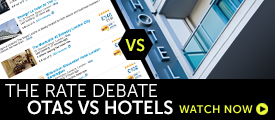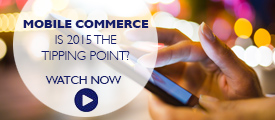A report from KPMG has found that 58% of organizations have difficulties evaluating data quality and reliability. Only 19% say they are currently ‘very satisfied’ with the insights their Data and Analytics tools provide. And only 14% think they have all the talent and capabilities they need to fully leverage data and analytics.
Relevant information and statistics can be provided by data collection or research services, or can be a result of good data systems within a hotel.
In these videos experts discuss services they offer to the hospitality industry and its customers:
KPMG’s report Going beyond the data: turning data from insights into value found that 97% of organizations say they are using Data and Analytics in some area of the business and 81% of respondents have improved their understanding of customers. There are a multitude more ways data can help organisations to make accurate and fast business decisions and sell their product effectively if they are able to leverage data properly.
In 2016 Snapshot will launch a new Hotel Analytics platform. The products is promised to be “Glanceable. Actionable. Effortless.” The platform has need significant investment to build, some of which came from long standing hotel market data & benchmarking company STR Global, and €25 million of which came from China based IT company Shiji Networks. The overwhelming volumes of data in the industry have long been both an opportunity and a headache to figure out. This product will surely appeal to many.
This is one of many companies responding to the demand for clarity of data. As discussed in the above videos UK based research company BDRC Continental provide research to a variety of industries including hospitality. Maxxton provides IT solutions and services. The online travel agents like Expedia have access to a phenomenal amount of data spanning many brands and therefore can gain a great perspective on the industry. And technology companies such as Seranata Intraware provide solutions for hotels to organise their data.
Video clips produced by ybc.tv for the Hospitality Channel, including interview from industry conferences such as the IHIF conference as well as specific Hospitality Channel shoots.




